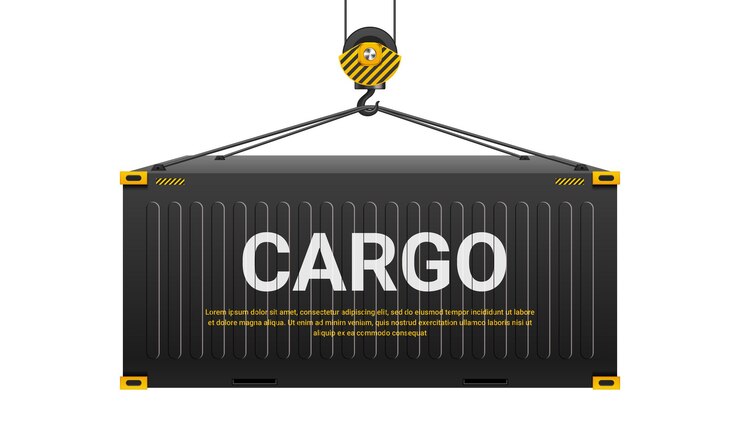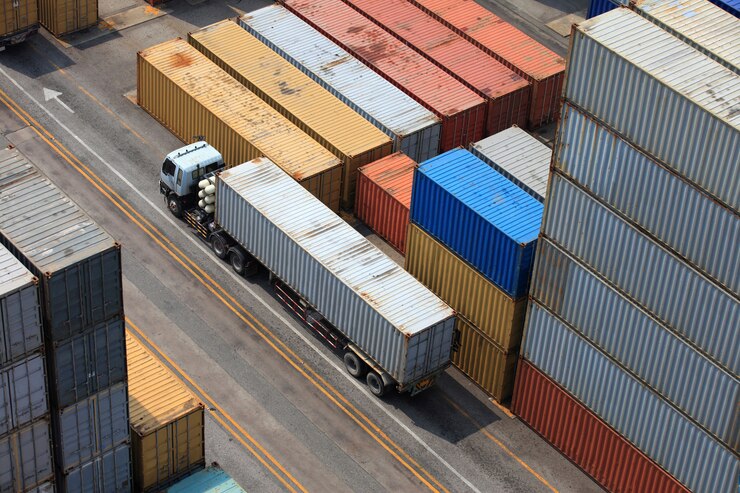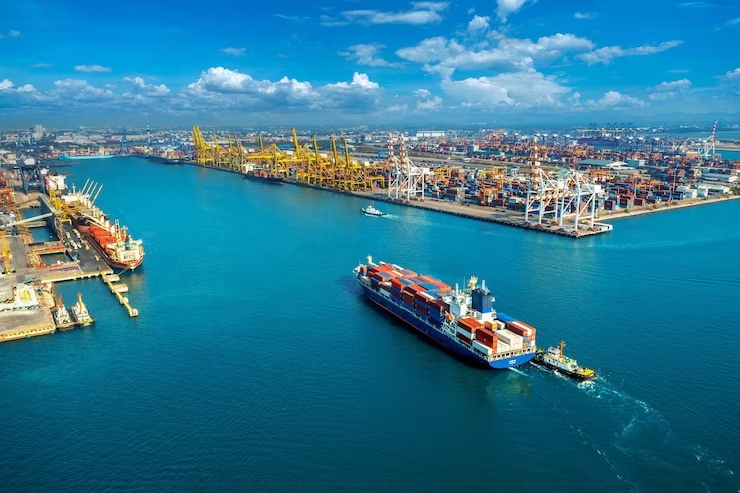Shipping containers are durable, made of stainless steel, with a solid body to withstand harsh climatic conditions and rigorous traveling. They are repurposed for onsite storage and architectural purposes. The shipment industry is crucial for economic growth and global trade. They provide efficient functionality in transportation and have brought innovation and transformation in the transport, storage container, and architectural industries. They have transformed how transporting, loading, and unloading goods, making the shipment process efficient, cost-effective, and environmentally friendly. Containerization has gained immense popularity on the global margin. Discover the importance of containerization in the shipping industry and its impact on global trade In using shipping containers for business.

Role of containers in transporting landscapes
The shipment containers are the most popular and functional ways of transporting goods, items, inventories, or documents through different modes, including ships, trains, and trucks, to the destined locations with sustainable and secure environments following harsh conditions. It is a cost and time-effective method of transportation with reduced chances of damage and enhanced safety. Moreover, the managed time fulfills the customer’s expectations and improves the overall experience of the product and the company.
Importance of containers in the shipment industry
Standard sizes and intermodal compatibility
Dimensions of standard shipping containers, such as Insight Into the Importance of 20-foot shipping containers for different purposes, and 40 in length, making them modular and easy to design for ships, trucks, and rail cars with efficient accommodation. Standardization increases intermodal compatibility, delivering smooth and comfortable transportation through boats, trucks, and trains. This improves global trade and logistics growth by managing time and costs through different modes and carriers.
well-regulated loading and unloading
The traditional cargo was manually loaded and unloaded, making an intensive and hassled labor work further consuming enough of the labor’s time. However, the newly introduced shipment containers are easily freighted with efficient equipment, reducing labor work and time. This strategy has reduced the stacking time and has improved the fast delivery with reduced shipping container use costs.
Safety and protection
You should protect the storage items well during the rigorous traveling process. The reason for using shipping containers for storage provide a safe and secure boundary for belongings during transit. It diligently takes care of the goods till they arrive at their destinations. The shipment container durability limits the risk of loss and damage. They have been air-tightened and adequately sealed, preventing unauthorized regulations from accessing them without permission.

Efficient handling of perished items
The shipment containers have been revolutionized as a compatible storage solution for fruits, vegetables, and seafood. The term “reefers” refers to containers that maintain adequate temperature and humidity to ensure the quality and freshness of these products during transit. This approach has provided solutions for transporting food items of different choices from the world’s regions.
Cost efficiency
The industry’s logistics have transformed the use and utilization of containers into cost-beneficial uses of storage & shipping containers. Standardized containers limit port handling, labor work, and infrastructure costs. They also provide efficient loading and unloading methods. Efficiently optimizing space and easily carrying containers by ships and other carriers makes the cargo cost manageable.
Environmentally friendly
Reduced ships and carriers require less transportation, lowering greenhouse gas emissions. Shipment containers are essential to developing more fuel-efficient vessels and reducing the carbon footprint in the industry. Companies manage cargo spills by sealing and air-tightening shipment containers during packing, protecting the environment from disasters.
Flexibility
The importance of containerization in the shipping industry versatility plays a significant role in transporting various types of cargo, including electronics, clothing, machinery, chemicals, and any virtual product. This has gained the economy through global trade, allowing the carriers to transport various products and items in a single custom shipping container.
Encouraging globalization
Shipping containers for dry storage facilitate the export and import of various items and products, enabling them to reach destinations across seas and oceans. This facilitates a global connection and promotes globalization through the action of trade. This international trade further enhances the country’s overall economy. The increased use of containers has improved the global supply chain, providing a finer accessibility of companies and previously unavailable resources.

Conclusion
To sum up, the importance of containerization in the shipping industry is exquisitely popular due to the versatility of its utilization. They are paramount in the global trade industry, enhancing economic standards and promoting globalization. Codes efficiently manage them to prevent the loss and damage of products, adhering to standard shapes. Shipping containers used in architectural design with robust security and safety, following all laws and regulations of cargo transportation. They are comparatively cheaper solutions than conventional methodologies. Their portability and mobility make them an efficient option for loading and unloading, and people can also stack them to optimize the space while they transit. They are eco-friendly because they promote the green effect and recycling them can minimize the effects of global warming. They are the ideal source of transporting items of specific choice across borders and oceans.


